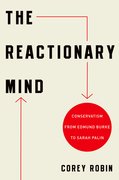By Corey Robin
 Inspired by all this libertarian talk, I dug out an old piece of mine from 2002, in the Boston Globe, that talks about a little known fact: many workers in the United States aren’t able to exercise their right to pee on the job—due to lack of government enforcement—and it wasn’t until 1998 (!) that they even got that right, thanks to the federal government. The piece pivots from there to a more general discussion about coercion in the workplace and its history.
Inspired by all this libertarian talk, I dug out an old piece of mine from 2002, in the Boston Globe, that talks about a little known fact: many workers in the United States aren’t able to exercise their right to pee on the job—due to lack of government enforcement—and it wasn’t until 1998 (!) that they even got that right, thanks to the federal government. The piece pivots from there to a more general discussion about coercion in the workplace and its history.
I wish academics, journalists, intellectuals, and bloggers had a more concrete sense of what it’s like to work in an actual workplace in America (not to mention elsewhere). Sometimes, it seems that scholars and writers, if they think about it at all, simply assume the typical workplace to be a seminar room, a newsroom, the cafe around the corner, or their office at home.
The piece isn’t long, so I’m reproducing it here in its entirety [Ed note: OUPblog has reduced to first 400 words]:
IN HIS NEVER-ENDING quest for control of the workplace, Henry Ford confronted many foes, but none as wily or rebellious as the human digestive tract. Hoping to tame what he called the body’s ”disassembly line,” Ford wheeled lunch wagons into his auto plant in Highland Park, Mich., and forced workers to wolf down a 10-minute sandwich on the job. So industrialized was ingestion at the plant that workers growled about their ”Ford stomach.” But where Ford sought to speed up the meal’s entrance into the body, his successors – from store managers in the Midwest to fashion moguls in New York – have concentrated on slowing down its exit.
Today’s workplace can sometimes seem like a battlefield of the bladder. On the one side are workers who wanna go when they gotta go; on the other are employers who want to stop them, sometimes for hours on end. Just this past month, a Jim Beam bourbon distillery in Clermont, Ky., was forced to drop its strict bathroom-break policies after the plant’s union focused negative international attention – from ABC News to Australia – on Jim Beam and its parent company, Fortune Brands, Inc. According to union officials, managers kept computer spreadsheets monitoring employee use of the bathroom, and 45 employees were disciplined for heeding nature’s call outside company-approved breaks. Female workers were even told to report the beginning of their menstrual cycles to the human resources department, said one union leader.
In their 1998 book ”Void Where Prohibited: Rest Breaks and the Right to Urinate on Company Time,” Marc Linder and Ingrid Nygaard of the University of Iowa – he’s a law professor, she’s a urogynecologist – trace the long and ignoble history of the struggle for the right to pee on the job. In 1995, for instance, female employees at a Nabisco plant in Oxnard, Calif., maker of A-1 steak sauce and the world’s supplier of Grey Poupon mustard, complained in a lawsuit that line supervisors had consistently prevented them from going to the bathroom. Instructed to urinate into their clothes or face three days’ suspension for unauthorized expeditions to the toilet, the workers opted for adult diapers. But incontinence pads were expensive, so many employees downgraded to Kotex and toilet paper, which pose severe health risks when soaked in urine. Indeed, several workers eventually contracted bladder and urinary tract infections. Hearing of their plight, conservative commentator R. Emmett Tyrrell Jr. advised the workers to wear special diapers used by horses in New York’s Central Park carriage trade….
This story ran on page D1 of the Boston Globe on 9/29/2002.
Corey Robin teaches political science at Brooklyn College and the CUNY Graduate Center, and is the author of The Reactionary Mind: Conservatism from Edmund Burke to Sarah Palin. He blogs at coreyrobin.com, where this post originally appeared.
Subscribe to the OUPblog via email or RSS.
View more about this book on the ![]()
![]()



Recent Comments
There are currently no comments.